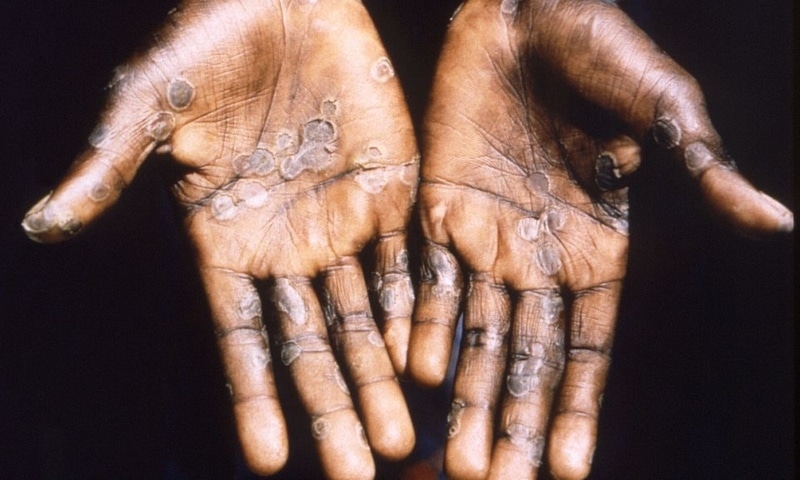The National Institute of Health (NIH) on Monday advised national and provincial health authorities to remain on high alert for any suspected case of monkeypox.
All stakeholders, particularly the Central Health Establishment that monitors points of entry, were asked to remain vigilant, according to the alert issued on the current multi-country monkeypox outbreak in non-endemic countries.
The NIH said timely detection and notification were important for the prompt implementation of preventive measures, and all public and private hospitals had been directed to ensure readiness for isolation and treatment.
As per the alert, a recent surge of monkeypox cases had been reported by non-endemic countries, including the United Kingdom, Spain and Canada, while a total of 92 confirmed and 28 suspected cases had been reported to date.
It added that the situation had compelled all countries to enhance surveillance and vigilance. The alert further said that NIH's Centre for Disease Control was monitoring the situation and would keep stakeholders updated.
Explainer: How concerned should we be about monkeypox?
The alert said the disease could be transmitted through contact with infected animals, humans or materials contaminated with the virus. The virus enters the body through broken skin, the respiratory tract or the mucous membranes like the eyes, nose or mouth.
Other human-to-human methods of transmission include direct or indirect contact with body fluids, lesions or contaminated clothing.
The alert stated that monkeypox was a rare viral zoonotic disease that was caused by infection with the monkeypox virus. Although the natural reservoir of monkeypox is unknown, African rodents and non-human primates like monkeys may harbour the virus and infect people.
The patient develops a rash within one to three days after the appearance of fever, often beginning on the face and then spreading to other parts of the body. Other symptoms include headache, muscle aches, exhaustion and lymphadenopathy.
The incubation period is usually seven to 14 days but can range from five to 21 days. The illness typically lasts for two to four weeks.
Punjab CM orders health dept to remain vigilant
Meanwhile, Punjab Chief Minister Hamza Shehbaz ordered the provincial health department to remain vigilant for cases of monkeypox.
"The health department should ensure the implementation of precautionary measures formulated by the World Health Organisation at all costs," the chief minister said in a statement released by the PML-N.
CM Hamza said an effective mechanism should be developed to screen passengers at airports, while precautionary measures should be implemented in time to prevent the disease from spreading.
He also directed to establish a monitoring cell and to launch an awareness campaign.














































Dear visitor, the comments section is undergoing an overhaul and will return soon.